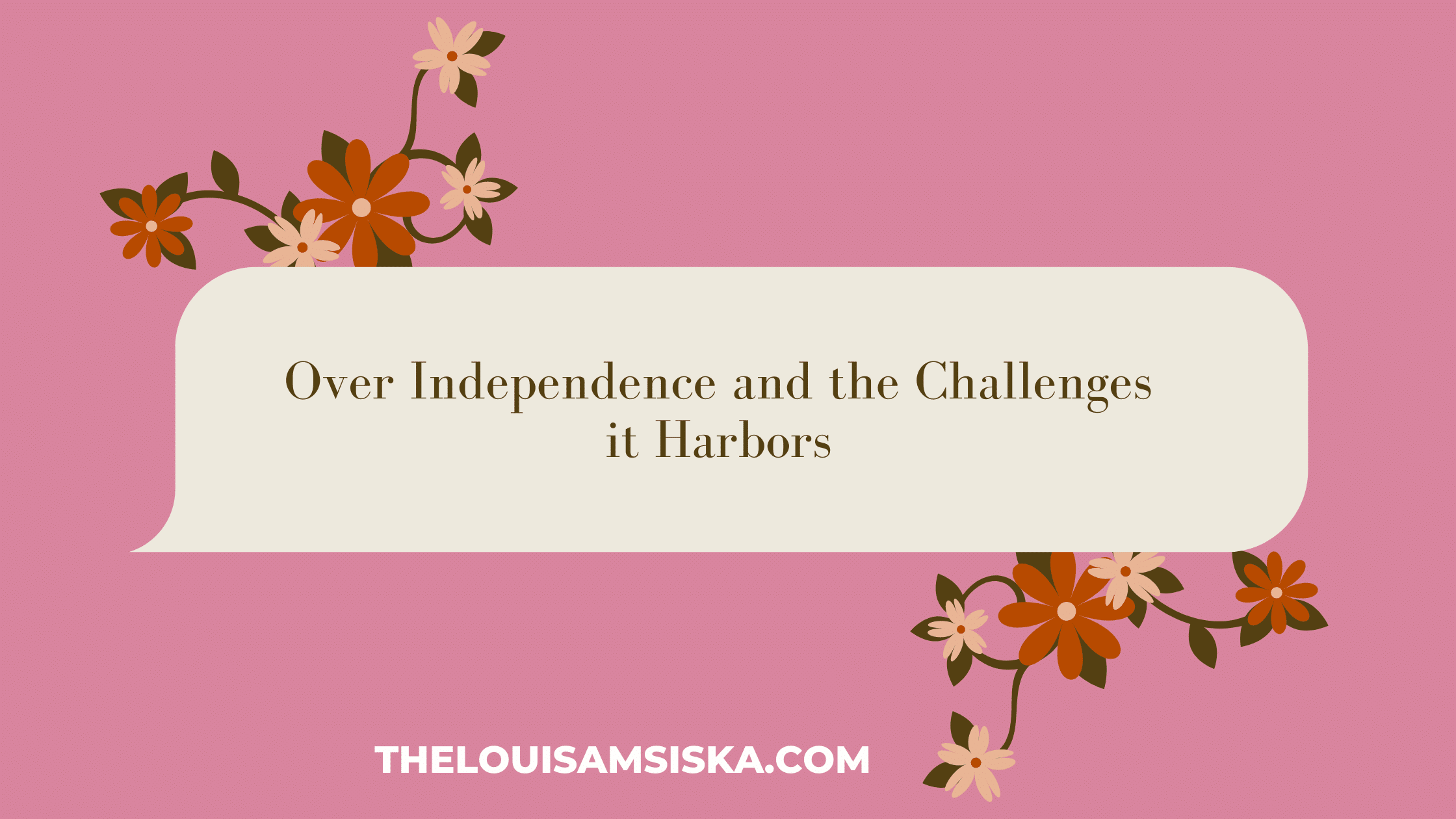As we grow up, we yearn for independence to become our own person. The thought of being able to make our own decisions and take charge of our lives makes our younger self motivated for growth. The anticipation of pursuing the most ridiculous dreams just because they are our dreams is very important. But if we are not careful when achieving independence, we might get lost in a haze, one that will always follow us around.
Sometimes, without knowing, we achieve independence and become overly independent, failing to recognize when people around us offer genuine help. Depending on the upbringing you have been exposed to, every help offered is often questioned because that is something you lack. I learned that one of the main reasons I do not take help easily is that it has always been offered at a cost.
This post is based on self-discovery, aided by everyone around me who has made it a point to share some of my traits.
of past trauma and how it affects independence
The first person to say without fear that I was too independent was my best friend, and she pointed out how uncomfortable I became to ask for help even when my whole being depended on it. Over the past year, this has been a recurring conversation. The past few months, we have had to revisit it repeatedly because of a change in my life that requires me to open myself up for help.
Over the past three weeks, I have had to do some self-introspection to understand why I am the way I am. Sharing this is as hard as discovering that side of me was. However, if someone with the same issue as me is reading, we could heal together.

childhood traumas
Over the years, I have always joked about having my childhood cut short. In 2021, I briefly shared some of the traumas I experienced, especially because I was an only child. In the blog post, I revealed that my independence is due to being let down a lot by people.
Quite a number of times, I was told to always rely on myself. No one would be there to help; I was my own help. I grew up with that skewed mindset and only saw people as people. Regardless of how close someone is to me, it never occurs that they would be willing to help with whatever. When they express their willingness, my mind automatically blocks that out or gives excuses for how they would disappoint me.
Basically, people who are too independent or hyper-independent walk around with a fear of disappointment and the belief that they can do anything alone. This also keeps us safe; it is the security blanket we wear proudly.

challenges of hyper-independence
As much as we view it as a security blanket, many challenges are laced with being too independent. These are challenges you would not think are there due to hyper-independence, but they are. Some are clear as day, while some are not so much. Let’s break them down.
- Lack of trust: this will always affect any relationships you build. There is always mistrust that no one can do things the way you would, which makes you not give people a chance to prove you wrong. To make it worse, delegating exactly how you want things done is always hard. In due time, you will find your relationships with people being strained.
- Disposing people: I have been told several times that I treat people like they are easily disposable. One slight mistake and it becomes reason enough to let them go. You push people away even when they mean well, all because you are used to handling things by yourself and in your own way. This is a huge problem, but it also means that you become very comfortable being by yourself and not having a support system to hold you down when things get tough.
- Fatigue and tiredness: you do not trust people, push them away, and are stuck with all the work. This is because we tend to hoard a lot of responsibility and work, which could have easily been distributed to others if given a chance.
- Feeling undeserving: the thing with being over-independent is feeling like you do not deserve help when offered. You will always justify why you are not the right person to receive the help and how others could use it. When you do try to rely on people, you get bombarded by feelings of shame. The levels of independence that we experience do not allow us to break a few of our walls and allow others to help carry our burdens.
- Difficulty expressing oneself: when you open up to getting help, it becomes overwhelmingly hard to be vulnerable and express yourself and your desires. You wait until the people helping fail and disappoint you; then, you pick up the pieces. This helps you solidify your grounds on why you have achieved your independence and why relying on others is not the best idea.
I could write a book on the challenges you meet due to over-independence. As I expressed earlier, this post will not share how to overcome it, but it is a solid foundation for myself and anyone in the same shoes in finding ways to overcome it.
But first, it is realizing to give people a chance and not always think the worst of people. If you are one of us, share your experience and what you do to be a better person.
Depending on people does not mean reliquishing your power. It is knowing when you cannot carry the weight of the world on your shoulders alone and have people hold your hand.

